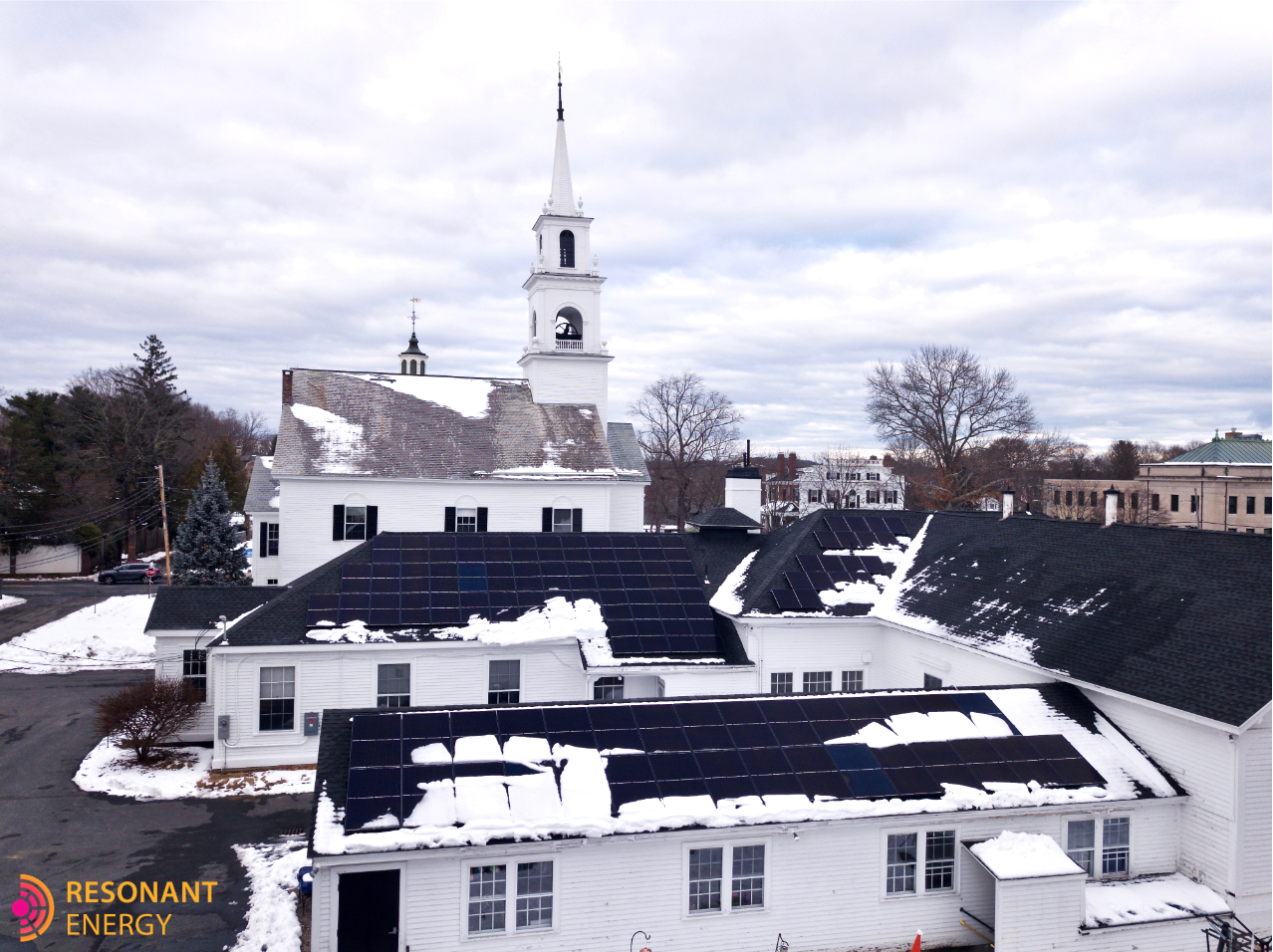Let it Snow: Solar and Winter Weather
Let it Snow: Solar and Winter Weather
By: Rachel Gentile
As a Massachusetts-based solar provider, questions about how changing weather and cold winters affect solar production, are above and beyond the most common item we hear from clients. In fact, we get questions about weather-related issues almost as much as people from the Northeast complain about the weather! Now that the days are getting shorter and growing ever more chilly, we want to take some time to answer these recurrent and important questions about how winter weather impacts your solar system and explain how we use past data to account for changing weather in our analysis process.
Seasons:
Every Northeasterner knows that the cold is approaching when the sun starts setting earlier, since the further north you live, the shorter your days are in the winter. Summer is the best season for solar production because the days are longer, meaning that solar panels are working for more hours of the day than they do in fall, winter and spring. Though the cooler months have fewer daylight hours, they make up for some of this loss with greater production efficiency, thanks to the impact of temperature on output.
Solar power generation varies seasonally, with the highest production occurring in the summer months when daylight hours are longer.
Temperature:
Photovoltaic (PV) solar harnesses energy from the light of the sun—not the heat—meaning energy is produced even in the bitter-cold Northeastern winters. Temperature does not affect the amount of energy the solar panels receive, but the panels are more efficient at converting that energy into electricity when it’s cold out and they are less likely to surpass their peak operating temperature.
Electricity is produced when light hits the panel and the electrons in the panel move from a “resting” state to an “excited” state. When the panels are cold, there is a greater difference in energy between the excited state and the resting state, which allows the panels to convert the energy into electricity more efficiently.
Panels are typically tested at 77°F, which means that when the temperature is higher, the panels will be less efficient and if the temperature is lower, the efficiency will be greater. Much like your car heats up when it’s parked in the sun, solar panels can get very warm throughout the day, but if the air is cold, it can cool the panels and increase efficiency. Therefore, the best days for solar panel efficiency are cold, sunny days like we typically see in late fall and early spring
For good record, unless you plow your roof, you don’t need to clear your solar panels!
Snow:
A light dusting of snow does not significantly prevent light from reaching the panels. As more snow starts to accumulate and cover the panels, it can prevent electricity production until the snow melts or slides off. Luckily, if even part of a panel is exposed, it can still produce electricity.
It may sound counterintuitive, but snow can actually be good for solar production. When the snow melts or slides off, it carries away any dust or dirt that may have accumulated on the panels. Clean panels produce more electricity than dirty ones, so the occasional rain or snowstorm is a good thing. Sometimes when snow slides off of sloped arrays, it all slides off in one large sheet so don’t be alarmed if you hear a loud crash after a snowfall—it’s just mother nature cleaning.
Rain/Clouds:
As we’ve already discussed, the best weather for solar panels is clear, sunny skies and cooler air, however, solar will still produce energy on rainy or cloudy days. On very cloudy days, panels produce anywhere between 10-25% of the energy that they would on a sunny day. The water droplets in clouds and rain scatter light, meaning that less energy reaches the panels and can be converted into electricity. Though we wish every day was bright and sunny, we know that weather varies in the Northeast and the occasional cloudy day won’t hurt your solar production in the long run.
Weather in our region may feel unpredictable, but when we create the production estimates that go into our project proposals, we put a lot of thought into making them as accurate as possible. Our software utilizes a dataset with 25 years of local weather data to predict how much energy your system will produce each year so you can feel confident in your investment. There are many variables that contribute to the amount of energy your solar panels will produce but regardless of your day-to-day production, solar is a long-term investment that will provide value for years to come.


